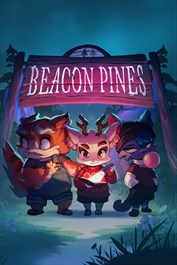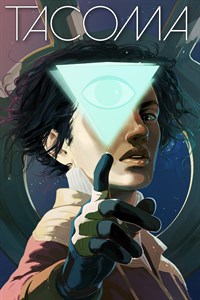 So walking simulators are a thing, right? Although I’m always leery of using the terminology, because am I trying to say “it’s like a game, but you don’t have to have any gaming skills to play it,” and more importantly, is that extra judgy / gatekeepery? I think I’m overthinking it, especially since I like both kinds of games, and others for that matter. Anyway, all of this to say that Beacon Pines is sort of that kind of game[1], but with a choose your own adventure twist.
So walking simulators are a thing, right? Although I’m always leery of using the terminology, because am I trying to say “it’s like a game, but you don’t have to have any gaming skills to play it,” and more importantly, is that extra judgy / gatekeepery? I think I’m overthinking it, especially since I like both kinds of games, and others for that matter. Anyway, all of this to say that Beacon Pines is sort of that kind of game[1], but with a choose your own adventure twist.
See, you play as a tween elk/llama-looking semi-orphan in the titular town, with a best friend and a treehouse and a mysterious corporation and a dark past. Well, I got mixed up a bit; the kid has the first two, the town has the latter two. …although there’s some bleedover. Only, all of that is not exactly right, because what you actually play as is the reader of a book, except the book has a personality and is in search of a satisfying ending. Maybe even a happy one?
Anyway, easily recommendable way to spend 8 or 10 hours, unless you are allergic to anthropomorphic animals or implausible pseudoscience.
[1] which Wikipedia Pete helpfully calls a “narrative adventure”, which is probably a better name anyway
 I played another entire game over the past few days. This is so so weird. (Which I say every time I finish a game, I know. But it is! Especially relative to how long it’s been since I finished a book[1].)
I played another entire game over the past few days. This is so so weird. (Which I say every time I finish a game, I know. But it is! Especially relative to how long it’s been since I finished a book[1].) So far, my favorite thing about Xbox’s Game Pass service is that it gives me the freedom to try things out that I cannot otherwise convince myself to pay for. To wit,
So far, my favorite thing about Xbox’s Game Pass service is that it gives me the freedom to try things out that I cannot otherwise convince myself to pay for. To wit,  The biggest problem with
The biggest problem with